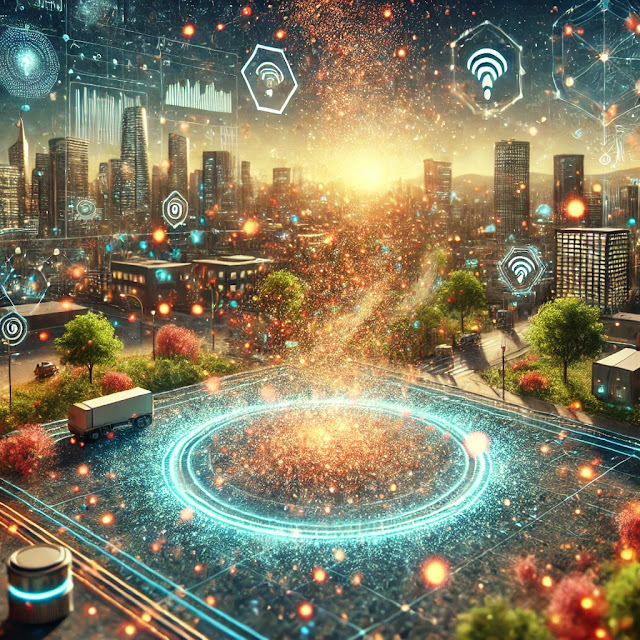Unveiling Smart Dust: The Tiny Tech Revolution That Could Reshape Our World

This blog focuses on the articles based on science and technology. By reading this articles you would definitely develop interest in science. This articles would be only for educational purposes and would help you in knowing new tech things also with your studies , if you are science student.

In a world increasingly driven by technology, Agentic AI has emerged as a groundbreaking advancement that is reshaping industries and redefining the boundaries of artificial intelligence. Unlike traditional AI systems that operate within predefined instructions, Agentic AI takes autonomy to the next level, exhibiting adaptability, independence, and the ability to make complex decisions without human oversight.
Agentic AI is a form of artificial intelligence that operates autonomously to achieve specific goals. It goes beyond simple task execution to dynamically adapt to changes in the environment, analyze vast amounts of data, and make informed decisions. Its ability to "think" and "act" independently has made it a critical innovation across various domains.
Agentic AI has transformed financial services, enabling real-time market analysis, fraud detection, and risk assessment. For instance, autonomous trading bots powered by Agentic AI can process market trends faster than any human, ensuring swift and precise financial decisions.
In healthcare, Agentic AI systems are being utilized for diagnostics, treatment recommendations, and personalized medicine. A notable example is AI-driven radiology tools that detect anomalies in medical scans with incredible accuracy, often faster than traditional methods.
The manufacturing sector benefits from Agentic AI in predictive maintenance, quality control, and supply chain optimization. Smart factories equipped with AI systems can identify bottlenecks, reduce downtime, and improve overall efficiency.
Agentic AI chatbots provide personalized customer service by learning from interactions and predicting user needs. This results in faster query resolution and higher customer satisfaction rates.
The autonomous nature of Agentic AI raises ethical issues, especially in sensitive areas like healthcare and employment. Decisions made by AI systems can sometimes conflict with moral or social norms.
Agentic AI systems, while highly capable, are not immune to cybersecurity threats. Unauthorized access could lead to misuse of data or system failures.
The lack of comprehensive legal frameworks for AI poses challenges. Issues like liability in case of errors or biases in decision-making need urgent attention.
| Feature | Traditional AI | Agentic AI |
|---|---|---|
| Guidance | Requires human oversight | Operates autonomously |
| Adaptability | Limited to predefined scenarios | Dynamic and real-time |
| Learning | Rule-based learning | Feedback-driven improvement |
| Scope | Narrow applications | Broad, multi-domain impact |
The global AI market is projected to exceed $594 billion by 2032, with Agentic AI driving much of this growth. Its integration into everyday processes is expected to revolutionize industries, creating new opportunities and reshaping societal norms.
Emerging trends include:
Agentic AI is not just an advancement in technology; it is a paradigm shift that holds the potential to redefine how industries operate. While it brings unparalleled benefits in terms of efficiency, scalability, and innovation, addressing its ethical and security challenges is crucial for sustainable growth. As we stand on the cusp of this AI revolution, Agentic AI promises to be a cornerstone of future technological advancements.
Comments
Post a Comment